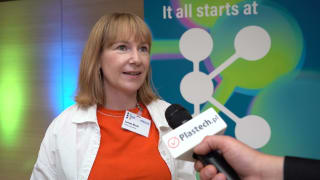
With over 50 million inhabitants Colombia is the second-largest state in South America after Brazil and one of the most substantial growth markets on the continent. The country is characterized by the mountain peaks of the Andes that reach heights of almost 6,000 meters above sea level and its around 3,000 kilometers of coastline more or less equally distributed between the Pacific and Atlantic oceans. Colombia’s best-selling beverage producer is Postobón, a big player that exports its products to 27 different countries worldwide. Its vast and highly diverse portfolio not only includes water and soft drinks but primarily juice, teas, energy drinks, beer and coffee. In its role as contract filler the company also bottles Pepsi, Gatorade, Mountain Dew and Seven Up, for example, plus Lipton Tea and Heineken beers. Of its 71 facilities, 20 are production sites that accommodate more than 100 filling lines, 20 of which are used for PET bottles. The company’s two largest complexes are located in the capital Bogotá, a metropolis of ten million, and in Malambo, a suburb of Barranquilla in the north of the country, where a greenfield project designed to house a total of eleven lines was begun in 2018.
Three block systems from KHS
Whereas in the past Postobón’s long-term relations with KHS focused on the supply of stretch blow molders, in 2018 the Colombian bottler opted for its first block system from the Dortmund systems provider. The first procured line includes an InnoPET TriBlock for water in plastic containers that comprises a stretch blow molder, labeler and filler. At a maximum capacity of 54,000 bottles per hour, the line is technically convincing with its consistent neck handling from the preform to the bottled product. With the help of the experts from KHS’ Bottles & Shapes program, a 600-milliliter bottle was specifically developed for this application that saves on material and weighs no more than ten grams. One particularly remarkable attribute in the dry section of the line is the multifuel burner on the Innopack Kisters SP that enables the shrink tunnel to be flexibly heated by either natural or propane gas.
Postobón was so pleased with the quality and speed of the installation and the work performed by the team on site that it subsequently ordered not one but two more block systems within the space of just 18 months. The second KHS line went into operation in Bogotá in 2021. This is also a turnkey filling line where a BloFill duo block for the hot filling (HotFill+) of juice, tea and energy drinks with optional nitrogen dosing forms the heart of the line. Finally, the third KHS line was installed at the aforementioned site in 2023 - with a TriBlock for carbonated beverages such as Pepsi Cola. “We value KHS as one of the world’s most renowned manufacturers of plant engineering,” says César Bohórquez, who as national project manager for Postobón coordinates the implementation of all strategic growth projects. “We’re impressed by their pioneering technological standards for high-speed lines. We count on KHS with respect to the growth of our business as one of our key technology partners. They develop extensive and efficient systems for our processes that perfectly meet Postobón’s growth requirements.”

Hot fill highlight
Technically speaking, the new HotFill+ line especially is a real highlight - for a number of reasons. At a rate of 2,250 0.5-liter bottles per hour and station it achieves an overall capacity of up to 54,000 containers per hour and is thus the fastest KHS line of its type to date worldwide. This is largely down to the reduced weight of the container design optimized by KHS’ Bottles & Shapes experts and extremely stable process control throughout the entire block. Thirteen products from three different categories are filled in eight formats holding between 200 milliliters and 1.5 liters on the highly flexible line. A filling valve specially developed for the customer can fill all beverages without the need for any format changeovers - regardless of whether these contain pulp or fruit fibers.
Sustainable and climate-friendly
It was important to the Colombians that the beverage containers use as little plastic as possible - and not just for financial reasons: besides quality and efficiency, sustainability and protection of the climate are further major issues the bottler invests considerable sums of money in. In 2021 alone, approximately US$30 million was spent on various social and environmental programs. Postobón’s biggest water brand Aqua Cristal, for example, is filled into bottles made entirely of recycled PET that themselves are fully recyclable. All told, the legal requirements for the avoidance of waste are more than met: for instance, the Colombians are proud of the fact that 72% of the packaging materials circulated by the company are recovered and reused. This figure even runs to 95% for glass bottles.



